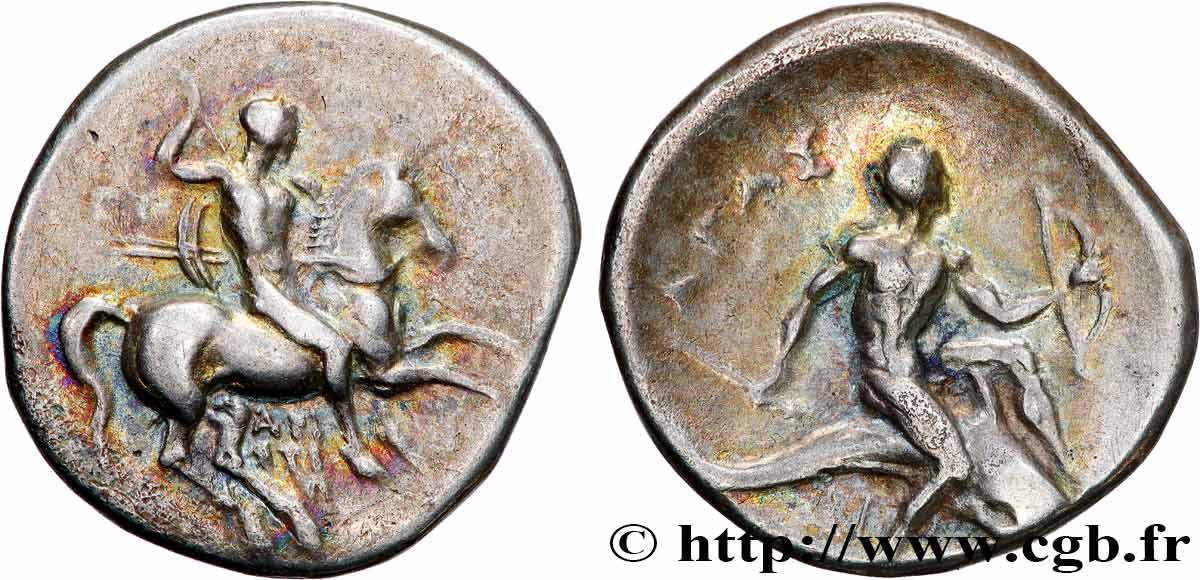bgr_781086 - CALABRIA - TARAS Nomos, statère ou didrachme
1 500.00 €(Approx. 1605.00$ | 1290.00£)
Quantity
Add to your cart

Type : Nomos, statère ou didrachme
Date: c. 281-272 AC.
Mint name / Town : Tarente
Metal : silver
Diameter : 21 mm
Orientation dies : 6 h.
Weight : 6,34 g.
Rarity : R1
Coments on the condition:
Monnaie légèrement décentrée au revers. Jolie représentation du droit. Patine grise avec des reflets dorés et bleutés
Catalogue references :
Obverse
Obverse description : Cavalier nu, coiffé d’un casque attique à triple aigrette, galopant à droite, tenant une javeline transversale de la main droite, un bouclier et deux autres javelines de la main gauche.
Obverse legend : ARI/ STI/ P// GU.
Reverse
Reverse description : Taras nu, chevauchant un dauphin à droite, tenant un arc de la main gauche et une flèche de la main droite ; dans le champ inférieur droit, un éléphant à droite.
Reverse legend : TARAS / DI.
Reverse translation : (Tarente).
Commentary
Exemplaire historiquement important.








 Report a mistake
Report a mistake Print the page
Print the page Share my selection
Share my selection Ask a question
Ask a question Consign / sell
Consign / sell